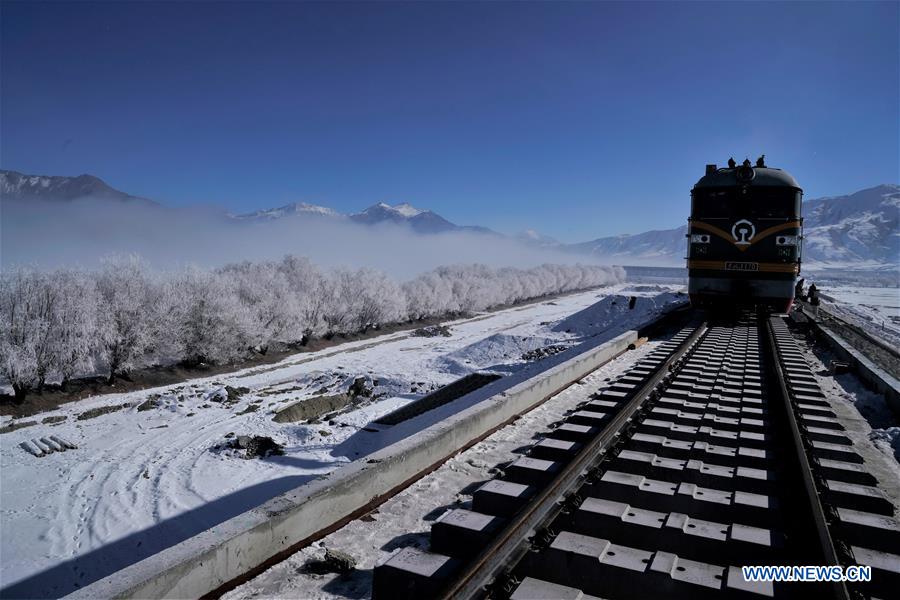Construction on a pivotal tunnel on a railway linking Lhasa and Nyingchi in southwest China’s Tibet Autonomous Region was completed Friday, marking huge progress of the mammoth project.
- The Bukamu Tunnel, located in Milin County of Nyingchi, is 9,240 meters long with an average elevation of 3,100 meters above the sea level. It is also the 37th tunnel being finished, leaving just 10 tunnels to be completed by the end of the year.
- Over 3,000 rock bursts were counted during the construction of the tunnel, while the oxygen level inside was merely 19 percent that of the plain areas, said Wang Shucheng, director of the project.
- The Lhasa-Nyingchi railway is 435 km long, 75 percent of which are bridges and tunnels. It is expected to be completed in 2021
Most of the tunnels along the Lhasa-Nyingchi section of the Sichuan-Tibet Railway have been completed, railway authorities said over the weekend.
The Bukamu Tunnel, one of the longest tunnels on the railway linking Lhasa and Nyingchi in Southwest China’s Tibet autonomous region, was completed on Friday. With its completion, 96 percent of the tunnels on the Lhasa-Nyingchi section of the railway are finished.
The 9,240-meter Bukamu Tunnel is located in Manling county of the region’s eastern Nyingchi city. According to the China Railway 17th Bureau Group, and it is also the 37th tunnel to be completed for this section, leaving 10 other tunnels to be finished by the end of the year.
“Once construction began in October 2015, it took more than 300 workers 1,234 days to complete the tunnel,” said Yan Qingjing, an official of the Lhasa-Nyingchi Railway Headquarters, which is part of the group.
“The oxygen level in the region is merely 50 percent that of the plain areas, with the tunnel’s location at an average elevation of 3,000 meters above sea level, and the oxygen level inside the tunnel is only 19 percent of that of the plain areas,” Yan said.
The group’s statistics show that more than 90 percent of the tunnel is rock burst section, and that more than 3,000 rock bursts were counted during construction of the tunnel, with an average daily burst of three.
Wang Shucheng, director of the project, said the tunnel’s depth reaches 1,381 meters at one point, and high geostress inside causes the tunnel’s highest temperature to reach 42 C, much higher than the railway tunnel construction safety temperature of 28 C.
“The tunnel is like a steam room,” said Kang Yanjun, who works with the group. “Once you get inside, you begin sweating profusely. It is like doing anaerobic exercise.”
The technicians must exert a lot of energy every time they work in the tunnel, and each person needs at least 10 bottles of water, Kang said.
“We have implemented a 90-minute work shift schedule,” Kang said. “We place ice blocks in the tunnel to prevent workers from getting sick because of the high temperature, and we also use fans and oxygen transfer stations inside the tunnel.”
With a length of 2,416 kilometers, the Sichuan-Tibet Railway connects Southwest China’s Sichuan province with the Tibet autonomous region. It is the second railway linking Tibet with the rest of the world, along with the Qinghai-Tibet Railway.
Xinhua

